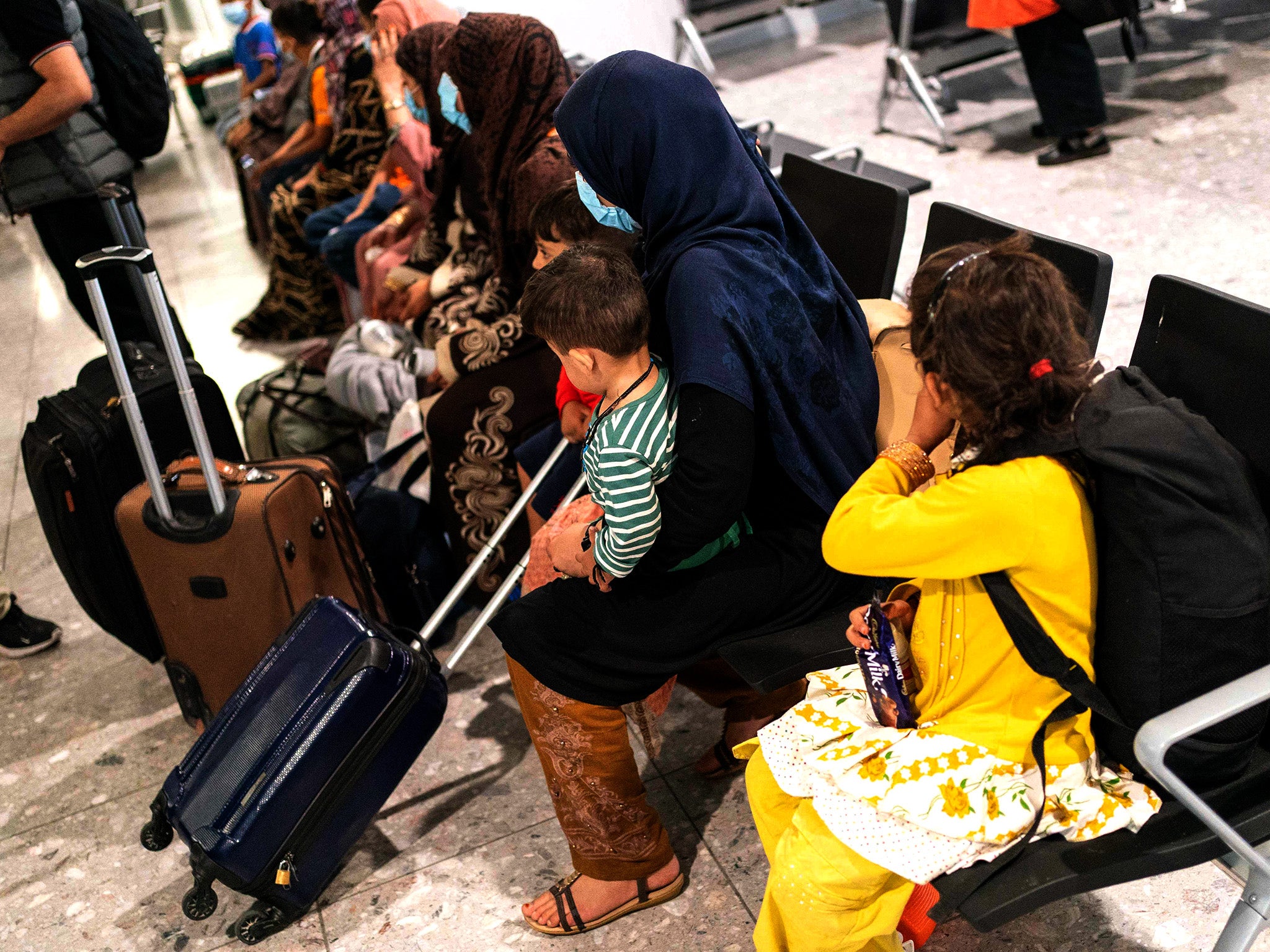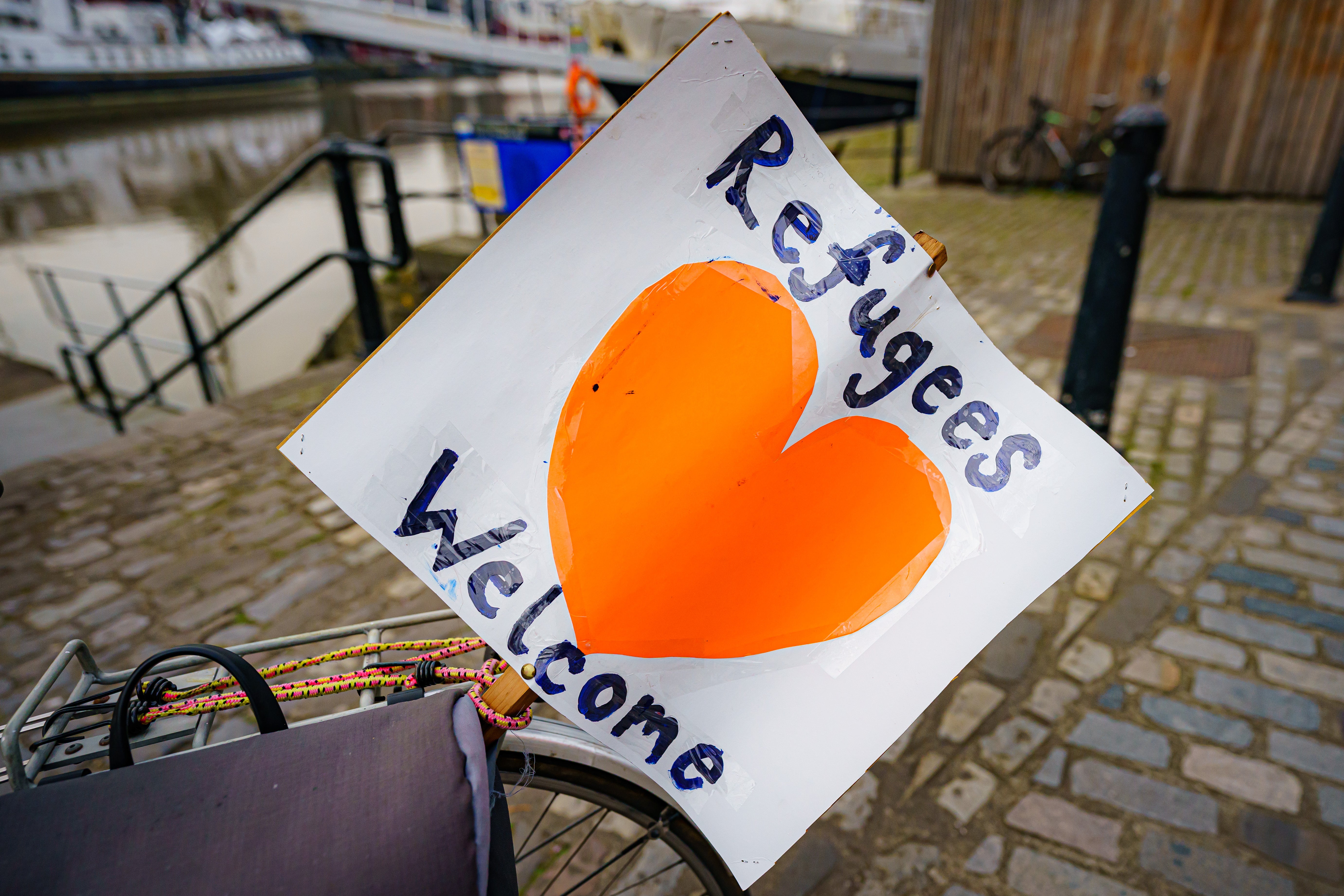Hundreds of child refugees wrongly sent to adult detention centres by Home Office
More than 1,300 children – some as young as 14 – were incorrectly judged to be adults, according to a freedom of information request by the Refugee Council, Helen Bamber Foundation and Humans for Rights Network

Your support helps us to tell the story
From reproductive rights to climate change to Big Tech, The Independent is on the ground when the story is developing. Whether it's investigating the financials of Elon Musk's pro-Trump PAC or producing our latest documentary, 'The A Word', which shines a light on the American women fighting for reproductive rights, we know how important it is to parse out the facts from the messaging.
At such a critical moment in US history, we need reporters on the ground. Your donation allows us to keep sending journalists to speak to both sides of the story.
The Independent is trusted by Americans across the entire political spectrum. And unlike many other quality news outlets, we choose not to lock Americans out of our reporting and analysis with paywalls. We believe quality journalism should be available to everyone, paid for by those who can afford it.
Your support makes all the difference.At least 1,300 child refugees who arrived in the UK alone have been wrongly identified as adults, with nearly 500 placed in detention centres or in unsupervised adult accommodation, according to a report published on Monday.
Fourteen young people spent up to seven months in adult prisons after the Home Office wrongly assessed their ages between January 2022 and June 2023, the charities found.
Such treatment is linked to an increased risk of suicidal thoughts and an increased likelihood of running away from care, leading many young people into homelessness and destitution. Children as young as 14 were among those judged to be adults.
The findings emerged from freedom of information requests made by the Refugee Council, Helen Bamber Foundation and Humans for Rights Network (HRN). The charities also warned that the Illegal Migration Act could lead to hundreds of children being wrongly removed from the UK and sent to Rwanda, or other countries, without having been assessed by childcare professionals.

Maddie Harris, director of Humans for Rights Network, told The Independent: “These children are terrified and continue to be profoundly affected by the experience of wrongful criminalisation. It’s a direct result of flawed Home Office decision-making at the point of arrival and a profoundly harmful policy of criminalising asylum seekers for the act of arrival in the UK.”
The findings in today’s report also show that:
- 485 children referred to local authorities in England between January 2023 and June 2023 were found to be under 18 and had to be immediately removed from unsafe facilities.
- 832 safeguarding concerns were recorded by Humans for Rights Network in the same period, with 406 subsequently accepted as children by local authorities.
- 185 children were taken into local authority care from an adult setting by the Refugee Council’s Age Dispute Project.
Charities fear these figures may be far higher, with many more children who have arrived since June 2023 not receiving the right level of care and protection from local authorities, including access to education, healthcare and legal representation.
In the year to June 2023 there were 5,186 asylum applications for unaccompanied children arriving in the UK, according to government statistics.

Jamal*, a 16-year-old boy from Afghanistan, was age-assessed as 25 on arrival in the UK after a brief visual assessment. “I felt sad and shocked – I’m 16 years old,” he said. “I’ve been in the hotel [for] about two months. I live alone here, with adults. I don’t have money, I’m worried about the future and I don’t feel good at all.”
Helen, also 16, from Eritrea, had a similar experience on arrival in Dover. She said: “When I said my age they said to me ‘You are lying’... They took us to a private room and a lady asked me some different questions. She said ‘OK, I can guess your age is 22’. She said: ‘Because you arrive by boat, you must know what you are doing, therefore you are over 18.’” She has now had her age accepted and has been moved to safe local authority accommodation.
The report notes that in many instances, children are not provided with an interpreter at interview, are laughed at or their physical appearance is mocked, and ID cards confirming their age, including the Afghan Taskira, are not accepted.
On 10 January the government brought into force the use of X-Rays and MRI scans to assess the age of children seeking asylum, despite medical experts warning the tests are unreliable and unethical. The tests include X-Rays of teeth and wrists, as well as scans of knees and collarbones.
Enver Solomon, chief executive officer of the Refugee Council, described the situation as an “alarming child protection failure” and called on the government to take urgent action. “Hidden from view, very vulnerable child refugees are being exposed to harm and abuse as a result of inaccurate Home Office decision making. Each case is a child who is being put at risk and whose welfare is being forgotten.”
Kamena Dorling, director of policy at the Helen Bamber Foundation, said: “These new figures show that there continues to be something fundamentally wrong with Home Office decision-making at the border, and hundreds of children are suffering as a result.
“Recent legislation introduced by the government, including plans to x-ray children, will do nothing to solve this long-standing problem – it will simply cause further harm to those seeking protection in the UK. What we need is urgent change to the flawed policy of officials assessing age on sight."
The report calls on the Home Office to only dispute a child’s claimed age in exceptional circumstances, and to routinely notify local authorities whenever a potential child has been determined by them to be an adult. It also calls for full statistics on age disputes to be published, showing the number of children who are taken into care from the adult asylum system. The government currently refuses to disclose this data.
A Home Office spokesperson said: “Age assessments can be challenging and there is no single method which can determine a person’s age with precision. Many individuals arriving in the UK who claim to be children often don’t have clear evidence like an original passport or identity document to back this up.
They added: “We are strengthening our age assessment process, including establishing the National Age Assessment Board and specifying scientific methods of age assessments. Measures under the Illegal Migration Act will ensure the swift removal of individuals who have been assessed as adults and who have no right to remain in the UK.”
Join our commenting forum
Join thought-provoking conversations, follow other Independent readers and see their replies
Comments